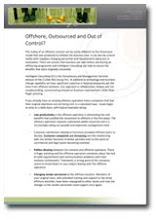How do you effectively and sensitively attract and retain applicants during the recruitment process, instead of having to make a peace offering of a large salary at the end of a tedious journey?
In response to the recent Labour Market Statistics, this series will offer examples of ways in which recruiters and employers can thrive during low candidate availability. In this, the second of our series of articles demonstrating how you can manage the dwindling talent pool, we explore the lasting value of creating a good candidate experience.
A candidate’s experience is one of the most powerful tools of retention in the Hiring Manager’s arsenal. It is the quality of their recruitment journey, from beginning to look for work to settling in at their new job, and the relationship their prospective employer builds with them throughout that journey. First impressions can make or break a working relationship, and hiring managers must put themselves in their shoes to empathise with their goals and anxieties.
An excellent candidate experience will include:
- A well designed, interesting career site which promotes you as an employer and clearly communicates your Employment Value Proposition (EVP)
- A compelling advert which promotes the features of the role and is clear on the skills and experience required
- Enthusiastic and reassuring Hiring Managers who are trained in interview skills
- Useful guides, blogs and eBooks explaining, for example, how to prepare for interviews
- Making it easy to search and apply for the position
- Acknowledgement of their application
- Human interaction as well as automated messages
By implementing these factors, you can ensure your candidate’s peace of mind. This is not something to be underestimated; 42% of candidates who receive a poor candidate experience will never seek employment with you again. In the current climate, no one can afford to lose perfectly good talent to such avoidable things as a late phone call or an apathetic tone of voice.
The optimum achievement is that, during the interview, your candidate feels like you want them to be themselves. Rather than having to jump through invisible hoops to appear to be the person that you are looking for, the candidate should feel comfortable and prepared. If you can help them to feel assured and confident enough to be themselves, then you are sure to receive a more accurate self-portrait of your prospective employee.












